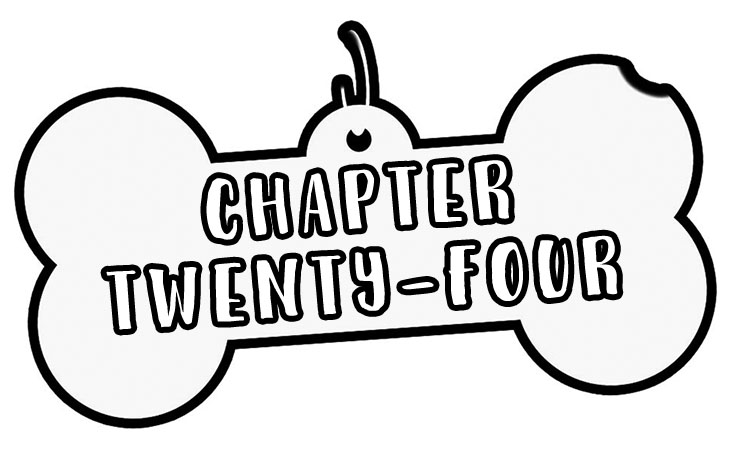

I didn’t even want to think about what he meant by “not exactly.”
But it didn’t matter what I wanted. Like a pineapple upside-down cake somehow coming out right-side up, it seemed that whatever I wanted Bones to do, he was sure to do the exact opposite.
“Having escaped the Group,” Bones said, “or so they thought, Joe Fur and Lucy – accompanied by Jefferson Hope – were soon on the move. When there was no evidence of anyone trailing them by the next morning, the Furs gave sighs of relief and began to relax. Jefferson Hope, however, was not the sighing or relaxing sort. He urged them to move faster, to put more time and distance between themselves and the Group.”
Bones sighed here.
“There are times when I think,” he said, “if only they knew what people know now, that they can talk to animals. If only they could have talked to the horses, like I can … ”
“Talk to the horses?” I snorted. “Like that would ever do anyone any good!”
“You know, Catson,” he said, considering, “someday, you will have to overcome all your prejudices – ”
“I?”
“And when you do, you will learn that there is always something to gain through peaceable conversation with other creatures.”
“And what could have been gained in this instance by ‘peaceable conversation with other creatures,’ pray tell?”
“If the humans could have talked to their horses, perhaps they would have learned that their horses had been talking to other horses. That information, if followed, could have saved so many people so much heartache.”
I opened my mouth. I shut my mouth. I can’t say my opinion of horses had improved very much, but I couldn’t fault his logic.
“Moving on,” Bones said, “our little party of three did gain more distance between themselves and the Group. And with that increased distance came greater relief.” Bones sighed again. “If only they knew … ”
If only they knew … ? That was just as bad as “or so they thought!” Does any good ever come following either phrase? If you ask me, it’s even worse than or else … At least with or else, there’s always the possibility of a positive outcome, however slim, as long as one party gives in to the other party and does whatever the or else was put there for in the first place. But if only they knew and or so they thought – those phrases never bode well, the words their very selves indicating that misfortune is soon to call.
Having originally thought all this to myself, I then spoke it all out loud, to which the dog replied:
“It never occurred to me before that you gave such philosophical matters so much thought.”
I glared at him. Just how many insults had he shot at me with that single sentence?
“Then what happened?” Waggins asked. What, did the puppy not want to see a cat-and-dog fight?
“Thinking that they were relatively safe for the time being,” Bones said, “Jefferson Hope took leave of the others. You see, their supplies were running low and he was the most capable among them to hunt for food. After all, if Joe Fur had been any good at that, he and Lucy would not have nearly starved to death in the desert, so many years ago.”
“You say hunting,” Mr. Javier said. “I hope it is not fish that we are about to see Mr. Jefferson Hope hunt.”
“I can safely assure you,” Bones said, “it was not fish. He had a rifle with him and no one uses a rifle on fish unless those fish are in a barrel.”
This was possibly the most inaccurate thing I had ever heard the dog utter, but the turtle seemed satisfied, so I let it pass.
“It took a long time for Jefferson Hope to find what he was seeking,” Bones said, “which, in a way, you could say was also the story of his life. By the time he finally returned several hours later, to the campsite where he’d left Joe Fur and Lucy earlier in the day, do you know what he found there?”
We stared back at him. How should we know?
“Nothing,” Bones said. “He found nothing.”